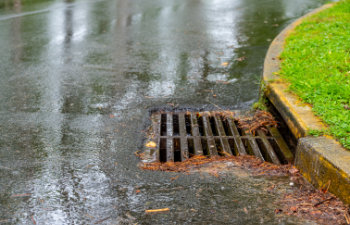
Your septic system is an essential component of your home’s infrastructure, quietly handling and treating your household wastewater. The drain field, a crucial part of the septic system, is often out of sight and out of mind. However, Metro Septic in Cartersville emphasizes the importance of this component and warns against the common mistake homeowners make: parking or driving over the drain field.
The Function of a Drain Field
Before diving into the risks associated with parking on the drain field, it’s crucial to understand its function. The drain field is responsible for removing contaminants from the liquid that emerges from your septic tank. This is achieved through a series of pipes laid out beneath the ground, which release the wastewater gradually, allowing it to be filtered by the soil.
Risks of Parking on Your Drain Field
- Soil Compaction: The primary issue with parking or driving over the drain field is soil compaction. Vehicles are heavy, and their weight can compact the soil in your drain field area. Compacted soil has reduced porosity, meaning less space for water to filter through. This can lead to inefficient drainage and reduced treatment of wastewater, causing backups and potential system failure.
- Pipe Damage: The weight of a vehicle can also damage the pipes within the drain field. Even if the soil doesn’t compact immediately, the constant pressure exerted by vehicles can crack or crush these pipes, leading to leaks and system malfunctions. Repairing or replacing these pipes can be a costly and invasive process.
- Reduced System Life: Consistently parking or driving over the drain field can shorten the lifespan of your entire septic system. The additional stress and potential for damage can lead to premature failure, requiring a full system replacement much sooner than typically necessary.
- Environmental Hazards: A malfunctioning drain field can lead to untreated wastewater seeping into the ground and potentially contaminating nearby water sources. This is not only hazardous to your health but also to the environment. The potential for groundwater contamination is a serious concern and can lead to legal and financial repercussions.
How to Protect Your Drain Field
- Clearly Mark the Area: Ensure that the boundaries of your drain field are clearly marked to prevent accidental driving or parking on the area. Consider planting grass or using decorative markers to delineate this zone.
- Educate Your Household and Guests: Make sure that everyone in your household knows the location and importance of the drain field. Inform guests and service providers (like landscapers or delivery drivers) to avoid the area as well.
- Regular Maintenance and Inspections: Schedule regular maintenance and inspections with Metro Septic in Cartersville. Professionals can assess the health of your septic system and drain field, identify potential issues early, and provide guidance on how to prevent damage.
- Designate Parking Areas: Establish and use designated parking areas away from the drain field. This will help protect the septic system and also keep vehicles safe from potential underground hazards.
Schedule Your Septic and Drain Field Inspection
While it may seem convenient to use the space above your drain field for parking, the potential risks and costs far outweigh the benefits. Protecting your drain field from the weight and pressure of vehicles is essential for the longevity and efficiency of your septic system. By following the guidelines provided by Metro Septic in Cartersville, you can ensure that your septic system remains functional and effective for years to come. If you have concerns about your drain field or septic system, don’t hesitate to contact the experts at Metro Septic for advice and assistance.

